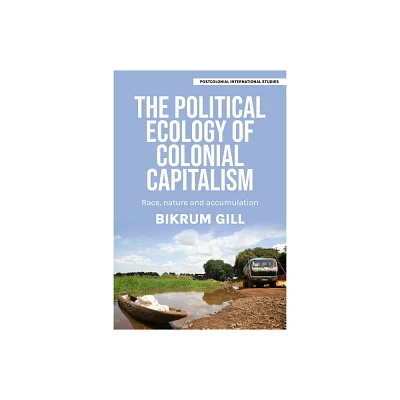Home
Slow Disaster: Political Ecology of Hazards and Everyday Life the Brahmaputra Valley, Assam
Loading Inventory...
Barnes and Noble
Slow Disaster: Political Ecology of Hazards and Everyday Life the Brahmaputra Valley, Assam
Current price: $180.00


Barnes and Noble
Slow Disaster: Political Ecology of Hazards and Everyday Life the Brahmaputra Valley, Assam
Current price: $180.00
Loading Inventory...
Size: Hardcover
*Product Information may vary - to confirm product availability, pricing, and additional information please contact Barnes and Noble
This book presents a fascinating, ethnographic account of the challenges faced by communities living in Majuli, India, one of the largest river islands in the world, which has experienced immense socio-environmental transformations over the years, processes that are emblematic of the Brahmaputra Valley as a whole.
Written in an engaging style, full of the author's insider perspectives, this insightful volume explores the processes of flooding and riverbank erosion in Majuli, including re-configuration of the island’s geographies, loss of local livelihoods, and large-scale displacement of the population. The book begins with an examination of the physical geography of Majuli and its ecological complexities, leading to discussion on the role of the state in water governance and hazard management, as well as popular resistance by the rural communities on the island. The book focuses on livelihoods as a way of offering economic context to living in challenging environmental conditions and examines the interactions between the state and a whole host of non-state actors, and the everyday, arbitrary functioning of the bureaucracy in a hazardscape.
This volume is an invaluable resource for scholars interested in political ecology of hazards and vulnerability, water and hydraulic infrastructure, rural livelihoods and agrarian questions, state theorizations, island studies, and resistance and social movements, as well as those with an interest in northeast India more generally across various disciplines.
Written in an engaging style, full of the author's insider perspectives, this insightful volume explores the processes of flooding and riverbank erosion in Majuli, including re-configuration of the island’s geographies, loss of local livelihoods, and large-scale displacement of the population. The book begins with an examination of the physical geography of Majuli and its ecological complexities, leading to discussion on the role of the state in water governance and hazard management, as well as popular resistance by the rural communities on the island. The book focuses on livelihoods as a way of offering economic context to living in challenging environmental conditions and examines the interactions between the state and a whole host of non-state actors, and the everyday, arbitrary functioning of the bureaucracy in a hazardscape.
This volume is an invaluable resource for scholars interested in political ecology of hazards and vulnerability, water and hydraulic infrastructure, rural livelihoods and agrarian questions, state theorizations, island studies, and resistance and social movements, as well as those with an interest in northeast India more generally across various disciplines.

















